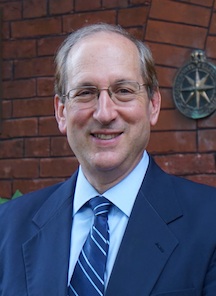What is the challenge that the founders of Phi Beta Kappa gave us over 240 years ago? A student member who participated in our program on free expression at the University of Southern California last year put it well: “Phi Beta Kappa can provide a forum to ask the big questions…You’re engaging this generation with the problems of our time.”
Engaging with the problems of our time describes the growing sense of purpose among our 286 campus chapters, nearly 50 regional associations, and 500,000 members of all generations nationwide, and indeed worldwide, linked by a respect for knowledge and the love of learning. The 45th Triennial Council convention in Boston this summer celebrated a vision for strengthening these connections while advancing the role of ΦBK as an advocate and opinion leader. We embrace this mission at a time when thoughtful, non-partisan content is needed more than ever.
Non-partisan advocacy in support of the liberal arts and sciences is core to our mission. Last year, the national office facilitated nearly 20,000 legislative actions in support of the arts, humanities, natural sciences, and mathematics—meetings with ΦBK members in Congress and governmental contacts of all kinds by our members, including letters, calls, tweets, and emails. We are among those responsible for increased federal support for the humanities at a time when defunding the National Endowment for the Humanities (NEH) had been threatened.
Our advocacy efforts are essential, especially in polarized times. The value of higher education, and the liberal arts in particular, requires champions on both sides of the aisle. Through our writing, speaking, and programming, we continually affirm the critical role of an arts and sciences education, and the lifelong learning it fosters, for a meaningful, productive, and engaged life.
Several examples of non-partisan advocacy elucidate the point. While Phi Beta Kappa does not have an institutional position of what priorities NEH should adopt at a particular time, we do have a position that there should be a well-funded NEH that advances public humanities. We do not have an institutional position on how universities should weigh various factors in admitting their classes. But we do have a position that values holistic admissions policies, not mechanistic test-driven admissions, and that values the rights of universities to determine admissions policies to best accomplish their educational mission. Phi Beta Kappa is committed to recognizing academic excellence and understands that excellence and diversity are inextricably intertwined. That is why we joined 36 other higher education organizations in an amicus curiae brief in the Harvard affirmative action litigation.
Our founders were deeply engaged in their tumultuous times; they would expect us to do the same.
Frederick M. Lawrence
Secretary and CEO




